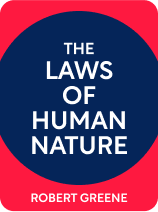

This article is an excerpt from the Shortform book guide to "The Laws Of Human Nature" by Robert Greene. Shortform has the world's best summaries and analyses of books you should be reading.
Like this article? Sign up for a free trial here .
What is natural aggression? Do all humans have natural aggression and how can you tell?
All people have some form of natural aggression, but we don’t like to admit to having this emotion. But once we recognize our natural aggression, we can learn how to counter it.
Read more about natural aggression and where it comes from.
Natural Aggression
Why are people aggressive? Like envy, aggression is an emotion no one wants to admit to having. For example, we all acknowledge that there are aggressive people out there, such as criminals, but we draw a hard line between us and them. We prefer to sketch peacefulness and cooperation into our self-images.
In reality, aggression is a natural part of human nature and everyone has it. Interestingly, it isn’t driven by any violence inherent in our species. In fact, aggression stems from a desire for control, which is driven by a fear of helplessness. Our helplessness comes from many sources: We need other people for validation and love but they’re unpredictable, we have childhood insecurities, and death comes, sometimes unexpectedly, for us all. This can help answer the question “why are people aggressive?”
We can see this latent aggression in our dealings with others—unconsciously, we compare our aggression levels to everyone else’s. When we meet someone who’s more aggressive, we tend to act meek and obedient. But when we encounter someone less aggressive, we tend to feel superior. We might help them, or we might use them. Usually, we rationalize our aggression—for example, someone else started the fight.
There are two myths associated with aggression:
- Myth #1: In ancient times, people were peaceful and respectful of the environment, and we’ve only recently developed aggression with the rise of capitalism and consumerism. We could destroy our aggression if we just fixed the system. This is untrue—our ancestors were violent, brutal, and damaged the environment.
- Myth #2: We’ve moved past aggression and today, humanity is more enlightened and rational. This is also untrue: We still go to war, politics are polarized, we’ve damaged the environment, and there’s huge inequality in wealth and power. These inequalities will continue to grow because they stem from aggression. In fact, we’re probably getting more aggressive—technology has given us new weapons and there’s a resurgence in public punishment. More and more people feel helpless, so there’s going to be even more aggression.
In this law, we’ll learn how to manage toxic types and how to control our own nature.

———End of Preview———
Like what you just read? Read the rest of the world's best book summary and analysis of Robert Greene's "The Laws Of Human Nature" at Shortform .
Here's what you'll find in our full The Laws Of Human Nature summary :
- Why it's in your nature to self-sabotage
- How you behave differently when you're in a group
- Why you're wired to want the wrong things in life






